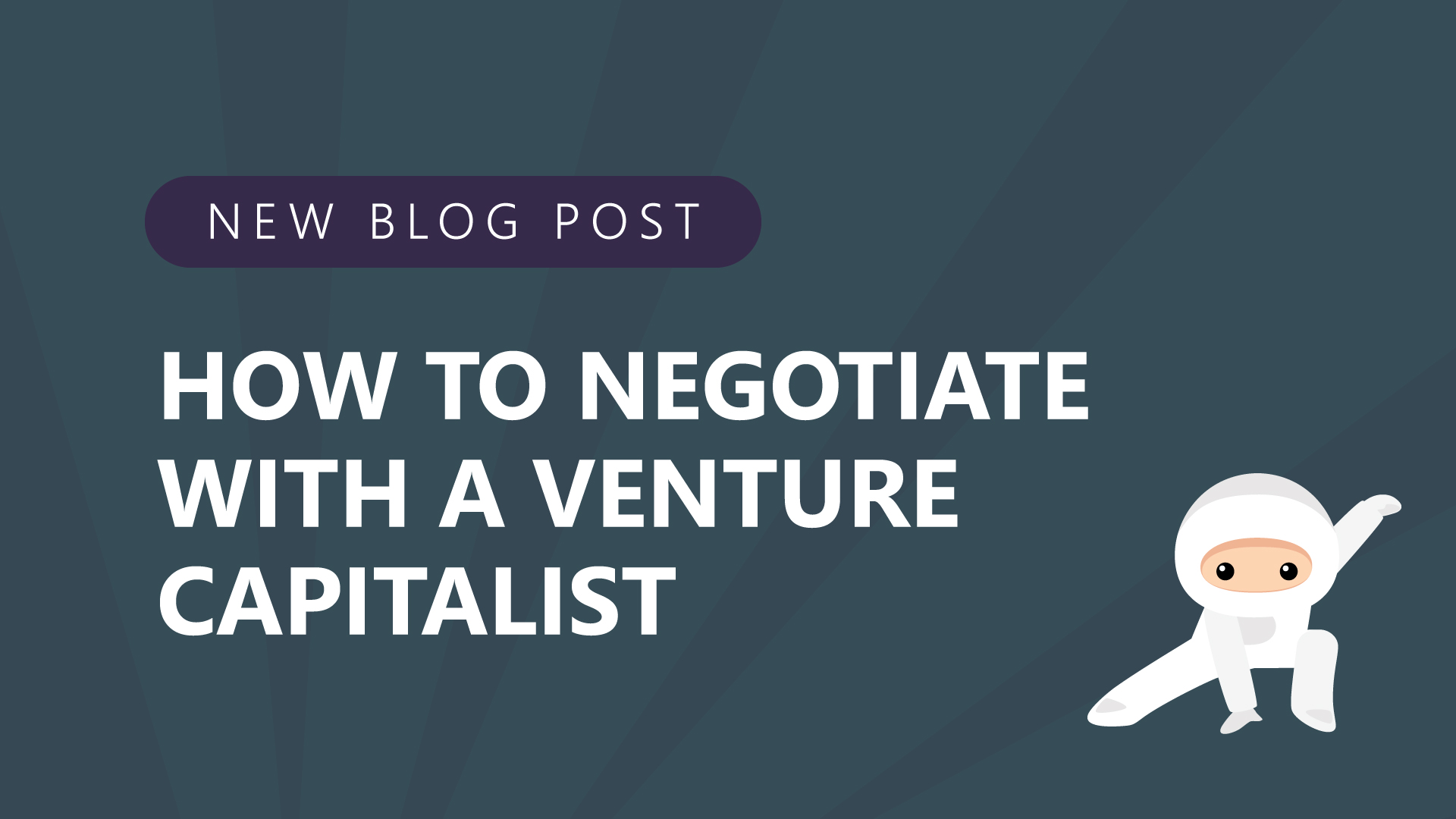When choosing between different venture capitalist funds, how do you negotiate if there’s a gap? What if you like one over the other, but they’re offering far less?
In a recent episode of Negotiations Ninja, Tim Schigel pointed out that it depends on the gap and the other terms being negotiated. If the terms are the same—but there’s a 20% gap in the value—have a transparent good-faith conversation.
It’s your fiduciary duty to take a good and fair offer. You can say that you believe the other offer is fair and they’re below it, and you’d like to close the gap, i.e., “We want to work with you, help us make it happen.” If the higher offer is an obscene valuation, then you choose the offer in the right range. It may not be worth risking the relationship to push for better terms.
Tim worked with a company where the current investors are doing a Series C. An investor in the B round wanted to do the C round. It’s tricky because they’re an insider. So the CEO had to talk to the market to get a valuation to the group they were already working with. If the existing investor wanted to do a $100 million valuation and they could get $150, that has to be negotiated.
Weigh your options carefully
Raising money is largely an unproductive activity. Maybe it’s better to find a compromise and get it done sooner instead of meeting with people who won’t invest anyway. Tim emphasizes that you don’t want to over-optimize or over-tailor these things because time also matters. It’s time that should be spent building the business.
Conversely, a new investor could bring something else to the table. You need to assess the situation based on what you think the company needs. But the point is to test the market to see where the benchmark is and determine what’s fair.
Key things entrepreneurs need to keep in mind
Tim recommends that you have a process in place so that you have conversations with multiple potential parties. Don’t do your analytics after the fact. Calculations can be off. A good valuation is driven by an auction or bidding war.
Secondly, listen to understand what the investor’s goals are. What is the investor trying to do? What do they want to see the company do? What do they want out of it? Discuss the terms sheet. Find out why some terms are important. How do they relate to the business and what you’re trying to achieve? If you aren’t sure, take time during the negotiation to think it through. You don’t know what you don’t know.
Don’t horse trade to optimize for the best features. People let pride get in the way of having honest conversations. The venture industry has a bad history of being aggressive and dishonest. But that’s not how Tim rolls. The more educated you are, the better.
Choose the right venture capitalist
Tim would rather convince an entrepreneur that he’s a good partner for them and can help them make sound business decisions. He actively encourages entrepreneurs to talk to other venture firms. He makes an aggressive, honest, transparent case if he’s interested in investing. People respect that.
You have to take the long view. Be clear about what you need and want for money and from an advisory perspective. You need to be rigorous. Tim is disciplined in his approach to investing—entrepreneurs need to be the same way. Don’t be intimidated by the people that have the money. They are your service providers.
If you’d like more insight into the mind of a venture capitalist and what they’re looking for, Tim goes in-depth into the process in episode #197 of the Negotiations Ninja podcast!
Text me at 587-315-5948 for negotiation advice.

